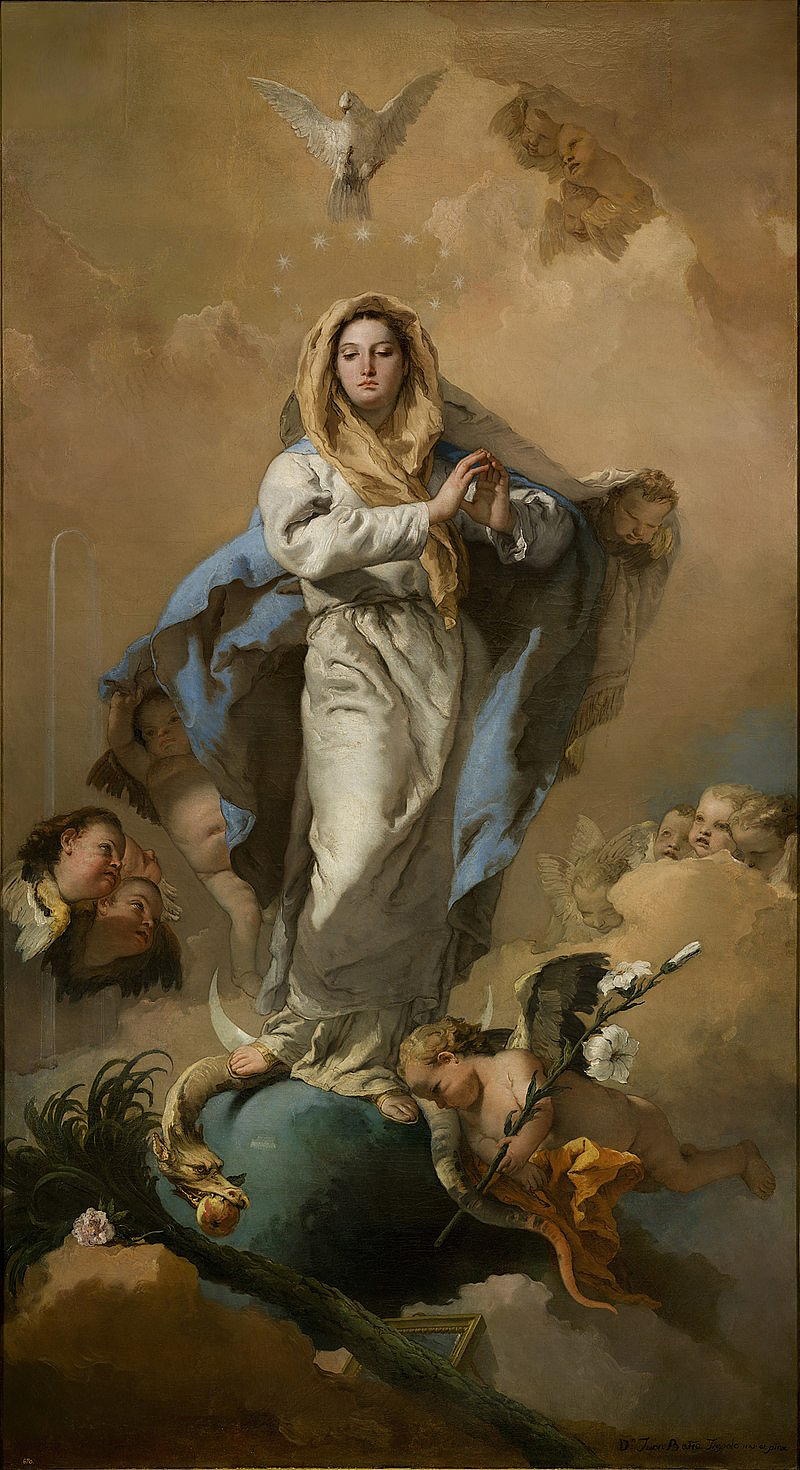Illegitimate

Giovanni Battista Tiepolo:
The Immaculate Conception: 1767–1768
" … some sacred responsibility to hear myself."
My talents, such as they might be, all fall under the general label of Illegitimate, for I came by none of them through proper means. I was never recognized as a prodigy of anything. I did not distinguish myself as a student of any art or science. I was never recognized as an especially inspiring leader or a particularly gifted teacher. What notoriety I have received came in through the bathroom window and was only narrowly appreciated and, even then, often misunderstood. My songwriting therefore grew to become a more private than public thing, something I demonstrated after dinner with a properly lubricated and intimate audience. I didn't so much suffer from imposter syndrome as embody it.
I believe that many, indeed, most, legitimate artists began their careers as Illegitimates. Their mothers advised them to choose something different for a career. Their fathers couldn't understand. Their contemporaries started out shunning them as destructive to important traditions and later, as merely self-destructive if not outright crazy, and certainly untalented. Later, after an unexpected success, should that ever happen, they might be begrudgingly accepted into the academy as lucky, but only as an exception and never as a freshly legitimate classification, but as a sanctioned rebel. Certified teachers will tip-toe around mentioning their catalogue. For every Van Gogh, thousands of less well known geniuses produced.
It never takes much to tip off the critics, who might not be creators themselves, though they maintain awareness and enforcement of certain standards. They can pick anything apart and leave it brutalized and beaten beside the trail. They lack a generous bone between them, though they might one day come to appreciate that they failed to appreciate some real contribution to a field. The artist, it seems, must learn to exhibit a certain indifference to critical opinion. They might even insist that there's really no such thing as legitimate criticism, for art appreciation must remain generous or it undermines itself. An effective critic should first compare whatever comes before them to a blank sheet of paper. How does this work compare to whatever was not there before? Not how it compares to what was recognized as exemplary then. It must be experienced in the present and filtered through the observer's prejudices and senses, and not against any so-called objective criteria. Objective criticism disqualifies itself as Illegitimate by definition. There's simply no such thing.
I struggle most with my own internal critics. I must not allow them to whisper in my ear, not if I can help it. I cannot always help it. I must create in nearly complete isolation. This might explain why I write almost exclusively in the very early morning when no witnesses are yet about, not even dog walkers. There's nobody to see, no witnesses to the felony, except me, and I've schooled myself in the fine art of generosity, for I could not be without its presence. Reincarnating my songs into a SetList reawakens many deep feelings of Illegitimacy for me, how I never managed to pass the test and fell far short of taking any degree in anything that deeply interested me. It was as if no university ever offered a curriculum in the one thing I felt capable of studying, and of dedicating myself to producing. Mine were exclusively back alley productions, immaculate conceptions and humiliating abortions, not even aspiring to become popular contributions to my generation's songbook.
Those songs were and are my songbook instead, mine and The Muse's, I guess, and the property, too, of a blessed few who witnessed and understood the significance. They were few, and not always me among them. I admit to sometimes feeling deep down embarrassment at having created them and so I sometimes struggle to practice and perform them. They can feel excruciating to hear. Without practice, they wither and fade and become as if they never existed, and by extension, as if I never existed, either. Reincarnating them should feel like an existential crisis, a form of embarrassment. The academy, of course, was never in the business of sanctioning my work. That was solely my own responsibility, to both conceive and to give birth, then to figure out how to live that life without any promise of ascension. The academy should quite properly never hear of me, but I hold some sacred responsibility to hear myself.
©2022 by David A. Schmaltz - all rights reserved


